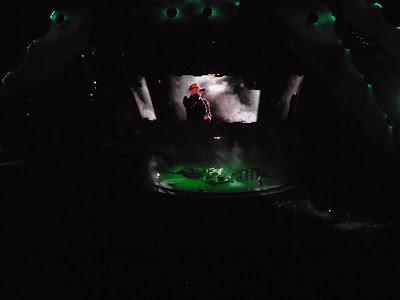I am in the Dominican Republic! And have managed to get to an internet cafe so thought I´d give you a brief update on what I am up to.
We left the IOC at 3am on Sunday morning and drove the 2 hrs to Dallas airport, thankfully I slept. We then flew to Miami, again I slept, and then after a nearly two hour delay we flew onto Puerto Plata, Dominican Republic. During the journey I managed to do quite a bit of reading so was very happy (I´m currently reading Bruchko by Bruce Olsen, a book about his life as he went to work as a missionary at 19 reaching a South American Indian tribe whose language was unknown and who were said to be savage warriors). All in all it was a pleasant journey. We were met at the airport by Sandra, who Mercy Ships has worked with on many occasions, and the girls from a girls club she runs. Our wonderful bus driver, Manuel, and our brilliant translator, Dennis, had got the tables ready in our team room and the girls had washed them ready for our arrival. This was a real blessing as it would have taken us a while to set up and we were tired after a long journey.
Monday morning we went to see the work Sandra does in Agros Negros at the school and in the various community projects she runs. It is an interesting place. Sandra is Dominican and is doing incredible work to develop the area where she lives through teaching the children and providing new enterprises so that people can make money, however, there is still obvious need there and many people live in poverty. Many of the houses are far too low and every time it rains they flood. The houses are in a disorganised order and the drains are not good. It is sad to see such poverty but such an encouragement to see how passionate Sandra is, and how she has built a program to help the people move out of poverty. It is a real example of successful development, as it has been embraced by the community and is improving the general quality of life.
In the afternoon we went to Villa Ascension. This is a community that was originally set up to harvest the now bankrupt sugar cane plantations. It is far away from other towns and has a mixed population of Dominicans and Haitians which creates some racial tensions. However the houses are in ordered plots and all have numbers which is brilliant for helping us learn our way around! We visited Kids Alive, the school where we will be doing our construction project and looked around the village. I was really struck by how isolated the people were and how little there was to do in the town.
Our wonderful cook (whose name has currently escaped me) cooked the most incredible spread for our dinner and we were able to rest after a long, hot day.
Tuesday we went to Kids Alive and started on the construction. We were moving a huge mountain of rubble from the grass into the base of the new dining room in the Dominican heat. It was hard work but we have an incredible team who worked tirelessly to get huge amounts done. In the afternoon I played with the children, who laughed at my accent and played with my hair (including pulling it in all directions!) and then did some more construction before going visiting, however, I will post about that another time!
I will update when I can however, time is limited here and we can´t always come to an internet cafe but I hope everyone is well.

























